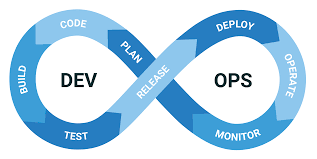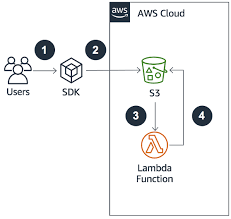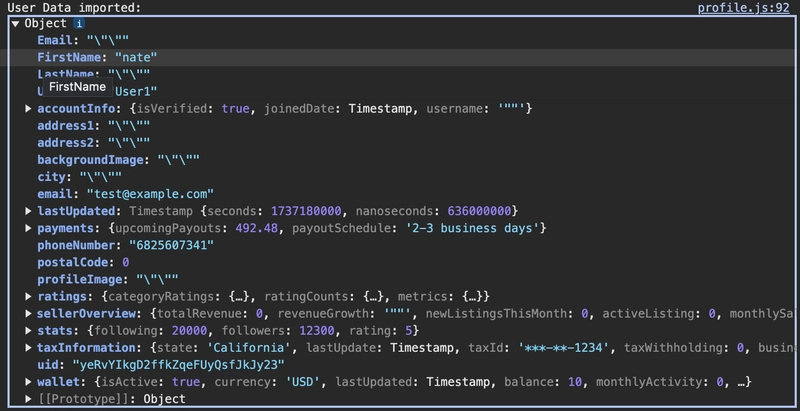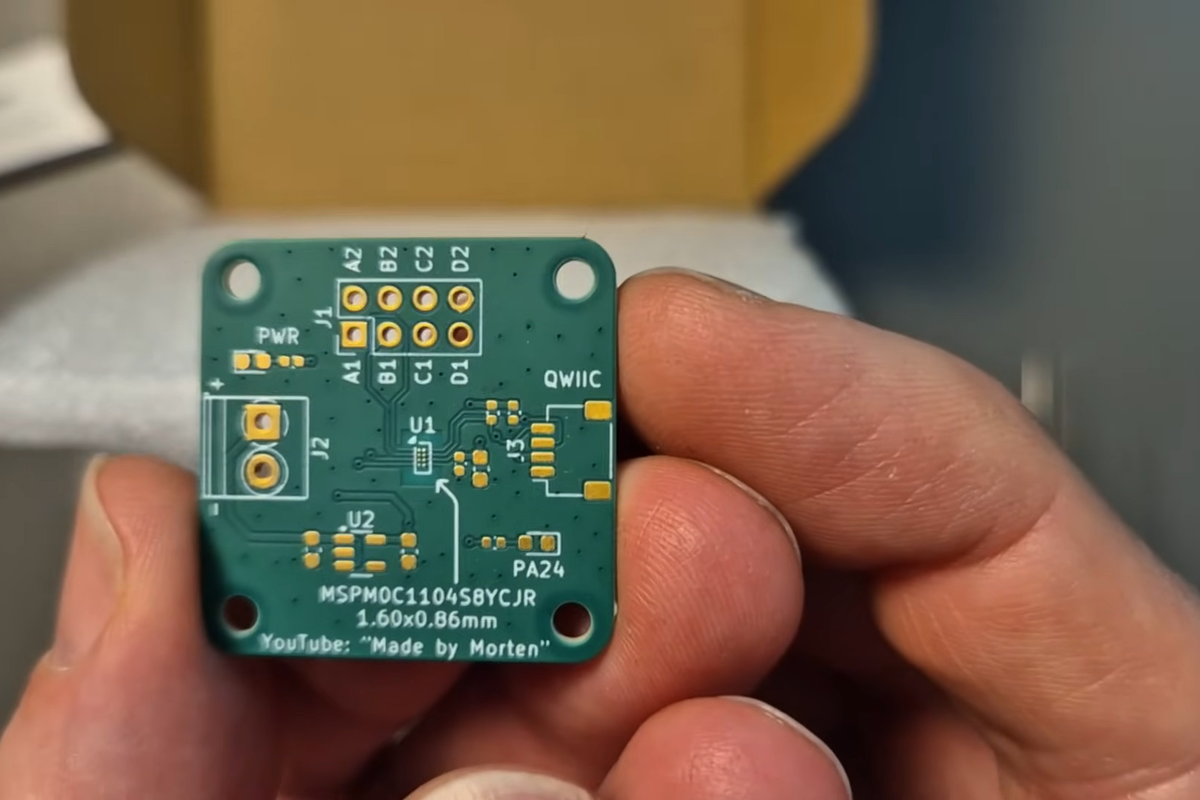What Is DevOps? Demystifying Its Purpose, Importance, and Role in Tech
Introduction Have you ever wondered how your favorite apps like Netflix or Instagram manage to roll out new features so quickly without crashing? Or how they fix bugs almost instantly, even with millions of users online? The answer lies in DevOps. When I first heard about DevOps, I thought it was just another tech buzzword—something companies put in job descriptions to sound cool. But as I started exploring, I realized it’s a game-changer in how software is built, deployed, and maintained. DevOps isn’t just about tools or automation; it’s a shift in mindset, a way of working that brings developers and operations teams together to build, deploy, and maintain software faster and more efficiently. In this post, I’ll break down what DevOps really is, why it’s so important in today’s tech world, and what DevOps engineers actually do. If you’re curious about how modern software development works behind the scenes or considering a career in DevOps, this guide will give you a solid starting point. Let’s dive in. What Is DevOps? At its core, DevOps is a culture, a mindset, and a set of practices that bridge the gap between software development (Dev) and IT operations (Ops). The goal? To enable faster, more reliable software delivery through automation, integration, and collaboration. Traditionally, development and operations teams worked in silos. Developers would write code, toss it over the wall to operations, and hope it ran smoothly in production. But this often led to slow releases, last-minute firefighting, and the classic blame game when things went wrong. DevOps changes that by fostering a collaborative culture where both teams work together throughout the software lifecycle. However, DevOps is not just a job title or a single toolset—it’s a way of thinking that can be applied across different IT and software development roles. While many organizations hire "DevOps Engineers," the essence of DevOps lies in its principles: automation, continuous integration, continuous deployment (CI/CD), monitoring, and testing. Why Is DevOps Important? The tech world moves fast. Companies need to release features quickly while ensuring stability and security. This is where DevOps shines: Faster Releases – Automating deployment pipelines allows teams to push updates to production quickly and efficiently. Improved Collaboration – DevOps removes the barriers between development, testing, and operations, reducing bottlenecks. Better Quality Assurance – Continuous testing and monitoring help catch bugs early, leading to more reliable applications. Scalability – DevOps practices ensure that applications can scale seamlessly, whether it’s a small startup or a global enterprise. Security & Compliance – Automation helps enforce security best practices and compliance policies across the development process. For companies, the ultimate goal is on-time feature releases without sacrificing quality. DevOps engineers play a critical role in making that happen. What Does a DevOps Engineer Do? A DevOps Engineer is not just a software developer or a system administrator—they sit at the intersection of development, operations, and automation. Their primary goal is to bridge the gap between teams, ensuring that software is developed, tested, and deployed efficiently. Here are some key responsibilities of a DevOps Engineer: 1. Automating Everything One of the biggest roles of a DevOps Engineer is automation. Whether it’s infrastructure provisioning, application deployment, or system monitoring, automation helps eliminate repetitive tasks and reduces human error. This includes using tools like: CI/CD Pipelines – Think of CI/CD as an assembly line for software. It automates the process of building, testing, and deploying code, so developers can focus on writing great features instead of worrying about manual tasks. (e.g., Jenkins, GitHub Actions, GitLab CI/CD). Infrastructure as Code (IaC) – Imagine being able to write a recipe for your entire IT infrastructure. With IaC, you can define servers, networks, and databases in code, making it easy to recreate or modify them with just a few commands. (e.g., Terraform, AWS CloudFormation). Containerization & Orchestration – Managing lightweight, portable application environments (e.g., Docker, Kubernetes). 2. Managing Source Control & Repositories DevOps engineers often maintain multiple GitHub repositories for various projects, ensuring that code is properly versioned, reviewed, and merged into production safely. They also enforce best practices like branching strategies, pull requests, and automated testing before merging new code. 3. Continuous Integration & Continuous Deployment (CI/CD) A key part of DevOps is ensuring smooth and fast code releases. DevOps Engineers: Set up CI/CD pipelines that automatically build, test, and deploy applications. Ensure deployme

Introduction
Have you ever wondered how your favorite apps like Netflix or Instagram manage to roll out new features so quickly without crashing? Or how they fix bugs almost instantly, even with millions of users online?
The answer lies in DevOps.
When I first heard about DevOps, I thought it was just another tech buzzword—something companies put in job descriptions to sound cool. But as I started exploring, I realized it’s a game-changer in how software is built, deployed, and maintained. DevOps isn’t just about tools or automation; it’s a shift in mindset, a way of working that brings developers and operations teams together to build, deploy, and maintain software faster and more efficiently.
In this post, I’ll break down what DevOps really is, why it’s so important in today’s tech world, and what DevOps engineers actually do. If you’re curious about how modern software development works behind the scenes or considering a career in DevOps, this guide will give you a solid starting point.
Let’s dive in.
What Is DevOps?
At its core, DevOps is a culture, a mindset, and a set of practices that bridge the gap between software development (Dev) and IT operations (Ops). The goal? To enable faster, more reliable software delivery through automation, integration, and collaboration.
Traditionally, development and operations teams worked in silos. Developers would write code, toss it over the wall to operations, and hope it ran smoothly in production. But this often led to slow releases, last-minute firefighting, and the classic blame game when things went wrong. DevOps changes that by fostering a collaborative culture where both teams work together throughout the software lifecycle.
However, DevOps is not just a job title or a single toolset—it’s a way of thinking that can be applied across different IT and software development roles. While many organizations hire "DevOps Engineers," the essence of DevOps lies in its principles: automation, continuous integration, continuous deployment (CI/CD), monitoring, and testing.
Why Is DevOps Important?
The tech world moves fast. Companies need to release features quickly while ensuring stability and security. This is where DevOps shines:
- Faster Releases – Automating deployment pipelines allows teams to push updates to production quickly and efficiently.
- Improved Collaboration – DevOps removes the barriers between development, testing, and operations, reducing bottlenecks.
- Better Quality Assurance – Continuous testing and monitoring help catch bugs early, leading to more reliable applications.
- Scalability – DevOps practices ensure that applications can scale seamlessly, whether it’s a small startup or a global enterprise.
- Security & Compliance – Automation helps enforce security best practices and compliance policies across the development process. For companies, the ultimate goal is on-time feature releases without sacrificing quality. DevOps engineers play a critical role in making that happen.
What Does a DevOps Engineer Do?
A DevOps Engineer is not just a software developer or a system administrator—they sit at the intersection of development, operations, and automation. Their primary goal is to bridge the gap between teams, ensuring that software is developed, tested, and deployed efficiently.
Here are some key responsibilities of a DevOps Engineer:
1. Automating Everything
One of the biggest roles of a DevOps Engineer is automation. Whether it’s infrastructure provisioning, application deployment, or system monitoring, automation helps eliminate repetitive tasks and reduces human error. This includes using tools like:
- CI/CD Pipelines – Think of CI/CD as an assembly line for software. It automates the process of building, testing, and deploying code, so developers can focus on writing great features instead of worrying about manual tasks. (e.g., Jenkins, GitHub Actions, GitLab CI/CD).
- Infrastructure as Code (IaC) – Imagine being able to write a recipe for your entire IT infrastructure. With IaC, you can define servers, networks, and databases in code, making it easy to recreate or modify them with just a few commands. (e.g., Terraform, AWS CloudFormation).
- Containerization & Orchestration – Managing lightweight, portable application environments (e.g., Docker, Kubernetes).
2. Managing Source Control & Repositories
DevOps engineers often maintain multiple GitHub repositories for various projects, ensuring that code is properly versioned, reviewed, and merged into production safely. They also enforce best practices like branching strategies, pull requests, and automated testing before merging new code.
3. Continuous Integration & Continuous Deployment (CI/CD)
A key part of DevOps is ensuring smooth and fast code releases. DevOps Engineers:
- Set up CI/CD pipelines that automatically build, test, and deploy applications.
- Ensure deployments are incremental and reversible to prevent major failures.
- Work with developers and testers to automate testing and catch bugs before deployment.
4. Monitoring & Incident Response
Once an application is running in production, a DevOps Engineer ensures that everything runs smoothly by:
- Setting up real-time monitoring and logging (e.g., Prometheus, Grafana, ELK Stack, Datadog).
- Automating alerts and responses for system failures or performance issues.
- Performing post-mortem analysis after incidents to prevent future occurrences.
5. Ensuring Security & Compliance
Security is a growing concern in software development. DevOps Engineers implement DevSecOps practices, which involve:
- Automating security scanning in CI/CD pipelines.
- Managing access controls and authentication for cloud resources.
- Ensuring compliance with industry standards (e.g., GDPR, ISO 27001).
6. Working with Cloud Platforms
Most DevOps Engineers work extensively with cloud platforms like AWS, Azure, or Google Cloud to deploy and manage applications. This includes:
- Provisioning virtual machines, databases, and networking resources.
- Scaling applications dynamically based on traffic.
- Managing cost efficiency and optimizing cloud resources.
Day-to-Day Activities of a DevOps Engineer
Imagine it’s Monday morning. You start your day by reviewing a pull request from a developer, ensuring the code meets quality standards. Next, you tweak a CI/CD pipeline to speed up deployment times. In the afternoon, you respond to an alert about a server running low on memory, scaling it up before users even notice a slowdown.
A typical day in the life of a DevOps Engineer usually include:
✅ Reviewing code and managing Git repositories.
✅ Automating deployment pipelines to push updates faster.
✅ Monitoring servers and responding to incidents.
✅ Optimizing cloud infrastructure for better performance and cost savings.
✅ Collaborating with developers, testers, and security teams.
One of the biggest challenges is balancing speed with stability. DevOps engineers constantly juggle the need for rapid releases with the responsibility of keeping systems reliable and secure.
Essential Skills for DevOps Engineers
Becoming a DevOps Engineer requires a mix of technical and soft skills. It’s not just about knowing the tools—it’s about understanding the DevOps mindset and working effectively with teams.
1. Technical Skills
✅ Cloud Computing – DevOps heavily relies on cloud platforms like AWS, Azure, and Google Cloud. You need to know how to deploy and manage applications in the cloud.

✅ Linux & Scripting – Most DevOps work happens on Linux servers. Knowing Bash, Python, or Shell scripting helps automate tasks.
✅ Version Control (Git & GitHub/GitLab) – Managing code effectively with Git, creating branches, handling merge conflicts, and using pull requests.
✅ CI/CD Pipelines – Setting up automated build, test, and deployment pipelines using Jenkins, GitHub Actions, GitLab CI/CD, or CircleCI.
✅ Infrastructure as Code (IaC) – Writing code to manage infrastructure using Terraform, Ansible, or AWS CloudFormation.
✅ Containerization & Orchestration – Working with Docker for creating lightweight applications and Kubernetes for managing containerized workloads.

✅ Monitoring & Logging – Setting up tools like Prometheus, Grafana, ELK Stack (Elasticsearch, Logstash, Kibana), or Datadog to monitor applications and servers.
✅ Networking & Security – Understanding firewalls, VPNs, SSL/TLS, IAM (Identity & Access Management), and security best practices in DevOps.
2. Soft Skills






















































.jpg)
%20Abstract%20Background%20112024%20SOURCE%20Amazon.jpg)



















































































































![[The AI Show Episode 142]: ChatGPT’s New Image Generator, Studio Ghibli Craze and Backlash, Gemini 2.5, OpenAI Academy, 4o Updates, Vibe Marketing & xAI Acquires X](https://www.marketingaiinstitute.com/hubfs/ep%20142%20cover.png)
































































































































![From drop-out to software architect with Jason Lengstorf [Podcast #167]](https://cdn.hashnode.com/res/hashnode/image/upload/v1743796461357/f3d19cd7-e6f5-4d7c-8bfc-eb974bc8da68.png?#)


















































.jpg?#)





















































.png?#)



































_Christophe_Coat_Alamy.jpg?#)









































































































![Rapidus in Talks With Apple as It Accelerates Toward 2nm Chip Production [Report]](https://www.iclarified.com/images/news/96937/96937/96937-640.jpg)










































































































































